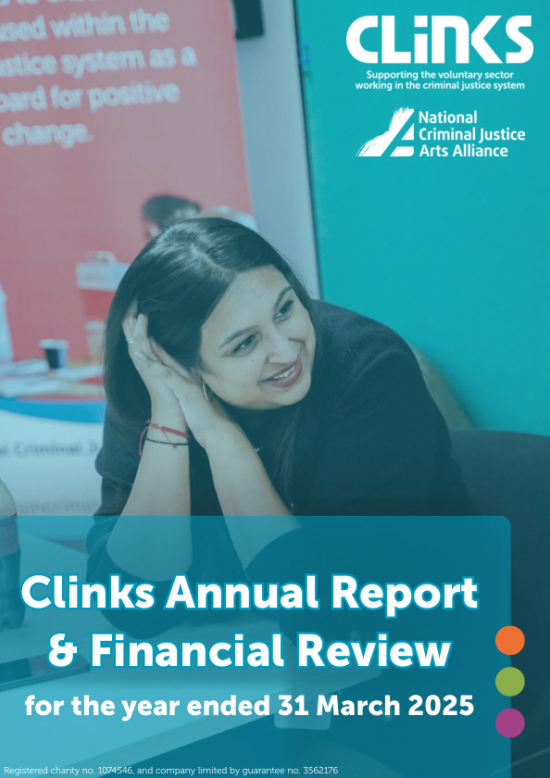In her role promoting and protecting the rights of all children in England, the Children’s Commissioner for England, Anne Longfield, is currently developing a new business plan. She is keen to focus on those groups of children who are often ‘invisible’ to policy or service providers and in need of most support. On 6th March, Clinks co-hosted a roundtable with the Office of the Children’s Commissioner to explore the difficulties facing one of these groups: children affected by the imprisonment of a parent. The event brought together voluntary sector organisations with expertise in supporting the children of people in prison as well as children’s charities who work with children who face disadvantage and representatives from statutory agencies in justice and education.
We are attending a round table today with @ChildrensComm to understand the impact on & how to support children of having a parent in #prison
— Clinks (@Clinks_Tweets) March 6, 2017
200,000 children affected by parental imprisonment
There are an estimated 200,000 children affected by parental imprisonment per year – though this estimate is likely to be lower than the actual number as there is currently no process for recording instances where children are affected by imprisonment. No government department or agency currently has overall responsibility for children of prisoners and, though there has been significant improvement in recent years, few local authorities have policies in place to address their needs. Children with a parent in prison often experience a range of negative outcomes associated with the imprisonment, including disadvantage as a result of the financial impact on their family, isolation due to the stigma surrounding imprisonment and trauma stemming from separation, having witnessed their parent’s arrest or from attending frightening prison visits.
While it is widely acknowledged across all sectors working in criminal justice and by government that the maintenance and development of positive family relationships is a key factor in reducing reoffending, organisations attending the roundtable highlighted a lack of understanding within criminal justice agencies of the broader needs of children affected by imprisonment. Research shows that maintaining contact with an imprisoned parent tends to be beneficial for a child (though there are of course exceptions in cases involving damaging or abusive relationships), however those at the roundtable emphasised the importance of getting this contact right. Prison visits taking place in security-focused, highly formal environments, often do not take into account the needs of the child to have physical contact with their family member and to feel safe and comfortable, rather than scrutinised and suspected by prison staff. Family days, which offer longer and more relaxed visits, often with support from specialist staff, were acknowledged by attendees as a way of providing more child-centred contact between imprisoned parents and their children.
.@SpurgeonsCEO suggests we need to train governors and inspectors to review prisons from a child's perspective
— Clinks (@Clinks_Tweets) March 6, 2017
A multi-agency approach
The importance of a multi-agency approach and particularly the involvement of schools was a key issue discussed at the roundtable. Organisations encouraged training for education staff on how to support children affected by imprisonment and the development of a culture in which parents and children feel comfortable and confident in disclosing imprisonment in order to access support. Similarly, it was felt that more awareness was needed within local authorities of how involvement with the criminal justice system can affect vulnerable children and families and how an understanding of the impact of imprisonment can support their work with at risk families.
Another important theme of the roundtable was the vital role of the voluntary sector in providing effective support and developing innovative interventions for children affected by imprisonment. From providing family engagement workers in prisons to training staff in schools and designing and delivering programmes in the community, voluntary sector organisations are often the primary source of support for children and families affected by imprisonment and are a key source of expertise for statutory agencies working with these children and their families. Clinks’ directory of offender services provides details of many voluntary sector organisations across England and Wales delivering support for families involved in the criminal justice system.
In addition to convening the roundtable, Clinks also responded to the Children’s Commissioner’s consultation on her business plan for 2017-18, highlighting the need for a greater focus on several groups of children involved in the youth justice system: black, Asian and minority ethnic children, looked after children and children affected by imprisonment. We will continue to work with the Children’s Commissioner to draw attention to the difficulties and inequalities faced by children involved with the criminal justice system and the leading role of the voluntary sector in providing the support these children and their families need.
SW: Family engagement workers essential to support families in resettling prisoners upon release and prisoners during sentence
— Clinks (@Clinks_Tweets) March 6, 2017
Further reading
- The roundtable was live-tweeted by Clinks – here’s a Storify of the event so you can find out more.
- Find out more about Clinks’ work on youth justice and family ties and imprisonment.
- Clinks blog: Family snapshots – from prison to the football pitch
What's new
Blogs
Anne Fox CEO of Clinks to stand down after a decade of service
Latest on X
The role is for a leader from an organisation focused on racially minoritised people, with expertise in service delivery, policy, advocacy, or related areas in criminal justice. Racial disparities are present at every CJS stage. This role ensures these voices are central in shaping policy to help address and eradicate them. Apply by Mon 18 Nov, 10am. More info: https://www.clinks.org/voluntary-community-sector/vacancies/15566 #CriminalJustice #RR3 #RacialEquity

